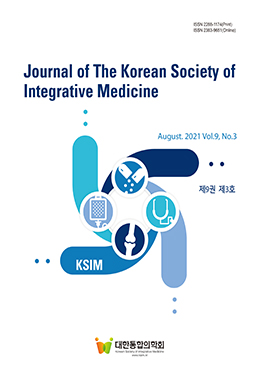Purpose : The purpose of this study is to investigate the effects of transcranial direct current stimulation and virtual reality program application on cognition and depression of patients with mild cognitive impairment, and to find an intervention method that can enhance active participation of patients with mild cognitive impairment.
Methods : In this study, 50 mild cognitive impairment patients were divided into a treatment group (25 patients) and a control group (25 patients). The treatment group was applied with a transcranial direct current stimulation and a virtual reality program, while the control group received a placebo transcranial direct current stimulation and a virtual reality program. Both groups received five 50-minute sessions per week (one session per day) for six weeks (total of 30 sessions). NCSE was used to evaluate the cognitive functions of the patients before and after treatment intervention. Moreover, K-BDI was conducted to examine the depression of the patients.
Results : As a result of the transcranial direct current stimulation and a virtual reality program intervention, the cognitive function of both treatment and control group significantly (p<.05) improved, and the depression of both treatment and control group significantly (p<.05) decreased. Moreover, the changes in cognitive functions and depression were significant between the two groups¸ treatment and control group (p<.05).
Conclusion : The results of the study showed that the application of the transcranial direct current stimulation and virtual reality program significantly improved the cognitive function of mild cognitive impairment patients and decreased the depression of them. Therefore, it could be concluded that the transcranial direct current stimulation and virtual reality program was an intervention method which positively affects the cognitive function and depression of mild cognitive impairment patients.




